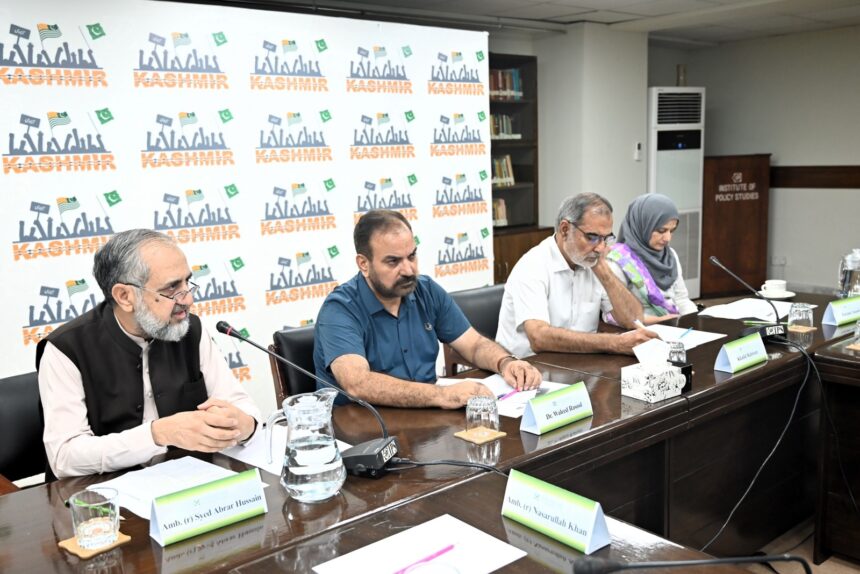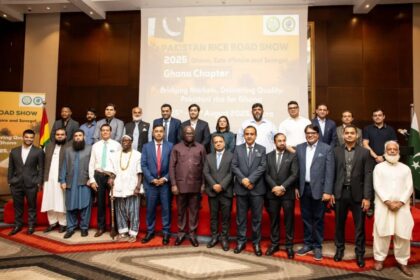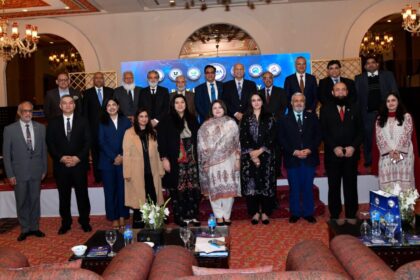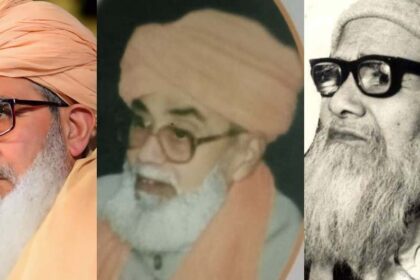Experts Say Kashmir Statehood Restoration Would Undermine India’s Position Post-2019
The possible restoration of statehood to Indian-administered Jammu and Kashmir would be seen as a setback to India’s unilateral decisions made in August 2019, according to a panel of experts convened by the Institute of Policy Studies (IPS) in Islamabad. They argue that such a move would highlight the weakening of India’s position amid domestic unrest, increasing global scrutiny, and shifting international power structures. The forum called for Pakistan to use the evolving situation to intensify diplomatic efforts for Kashmiris’ right to self-determination.
At a session titled “Restoring Statehood of IOJ&K: A Step Forward or Political Mirage,” speakers stressed the legal, diplomatic, and strategic implications of any change to Kashmir’s status. Dr. Sheikh Waleed Rasool, the keynote speaker, explained that the conflict over Kashmir has always been about the difference between legal sovereignty and practical control. He argued that India’s abrogation of the region’s special status violated multiple legal commitments, including the Indian Independence Act, United Nations Security Council resolutions, several bilateral agreements, and Article 370 of its own constitution. Dr. Rasool urged Pakistan to bring the Kashmir issue to the forefront through active engagement at political, humanitarian, and legal forums worldwide.
Brigadier (r) Khurshid Khan added that India’s record of human rights abuses in Kashmir has not received adequate international attention. However, he said the recent border conflict between India and Pakistan has put Kashmir back into the global spotlight, creating new strategic opportunities. He highlighted that Pakistan should use its recent United Nations Security Council resolution on the peaceful settlement of disputes to build sustained diplomatic momentum.
Brigadier (r) Raja Shozeb Majeed warned that India may try to implement measures in Kashmir similar to what Israel has done in Palestine, but recent developments have undermined India’s perception of control. He suggested Pakistan seek an advisory opinion from the International Court of Justice, use documentary evidence of human rights abuses, and collaborate with international think tanks to raise awareness about the situation in Kashmir.
Brigadier (r) Said Nazir noted that Pakistan has reestablished its military deterrence after recent confrontations, and cautioned India against considering the current status quo as permanent, warning that such a miscalculation would have significant consequences.
Ambassador (r) Abrar Hussain described India’s 2019 move to revoke Kashmir’s special status as both unconstitutional and illegal under domestic and international law. He noted that instead of pacifying the region, these changes have attracted renewed international focus and calls for a just resolution.
Concluding the discussion, IPS Chairman Khalid Rahman stated that India has experienced both diplomatic and strategic setbacks since its 2019 actions. Although the future of Kashmir’s status remains unresolved, he advocated for Pakistan to press its case internationally with clarity and resolve, emphasizing continued support for the Kashmiri cause.











